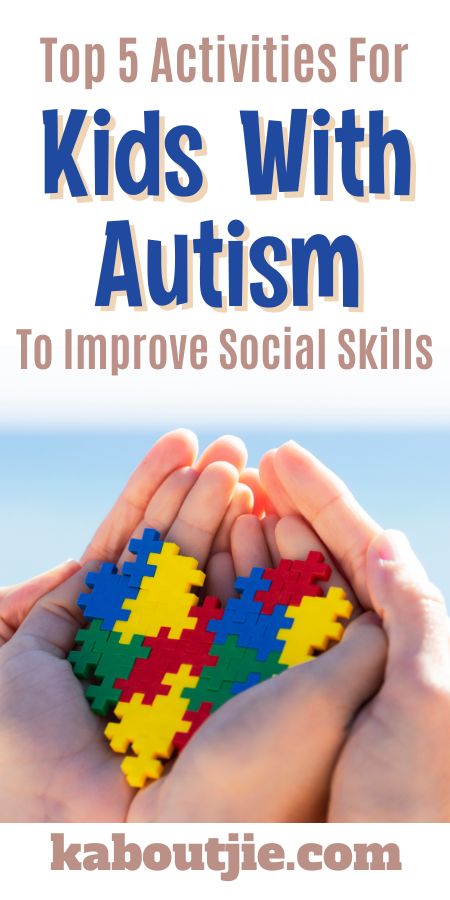Looking for ways to help your child with autism improve their social skills? These five activities are designed to be engaging and effective.

ABA Therapy (Applied Behaviour Analysis)
ABA therapy is a type of therapy that focuses on teaching new skills and behaviours through positive reinforcement. It can be particularly effective for children with autism who struggle with social skills. ABA therapy can be tailored to the specific needs of the child and can include activities such as role-playing, modeling, and social skills training. It is important to work with a qualified ABA therapist who has experience working with children with autism.
ABA therapy applies the principles of behaviour analysis to real-life situations. By understanding how behaviour works and how it is affected by the environment, ABA therapy aims to increase helpful behaviours and decrease harmful ones.
This type of therapy has been used for decades and has been shown to be effective in helping individuals with autism and related developmental disorders. ABA therapy programs can help improve language and communication skills, attention, focus, social skills, memory, academics, and decrease problem behaviours.
Role-playing Scenarios
Role-playing scenarios can be a fun and effective way to help children with autism practice social skills in a safe and controlled environment. You can create scenarios that are relevant to your child’s life, such as ordering food at a restaurant or asking for help in a store. Encourage your child to take on different roles and practice different social skills, such as making eye contact, using appropriate body language, and taking turns in conversation. You can also use props and costumes to make the scenarios more engaging and realistic.
Social Stories
Social stories are a great way to help children with autism understand social situations and learn appropriate social behaviours. A social story is a short narrative that describes a social situation, the expected behaviour, and the consequences of that behaviour. The story should be written in a way that is easy for the child to understand and should include pictures or illustrations to help them visualise the situation. Social stories can be used to teach a variety of social skills, such as sharing, taking turns, and making friends.

Peer Modeling
Peer modeling is a social skills activity that involves pairing a child with autism with a typically developing peer who can serve as a positive role model. The typically developing peer can demonstrate appropriate social behaviours and interactions, while also providing encouragement and support. This can be done in a structured setting, such as a social skills group, or in a more natural setting, such as during playtime at school. Peer modeling can be an effective way to help children with autism learn and practice social skills in a supportive and positive environment.
Group Activities
Group activities can be a great way to help children with autism improve their social skills. Activities like board games, team sports, and art projects can provide opportunities for children to practice turn-taking, sharing, communication, and cooperation. It’s important to choose activities that are age-appropriate and that match the child’s interests and abilities. Group activities can also help children with autism develop friendships and a sense of belonging.
 Kaboutjie SA Mommy Blogs by Lynne Huysamen
Kaboutjie SA Mommy Blogs by Lynne Huysamen




